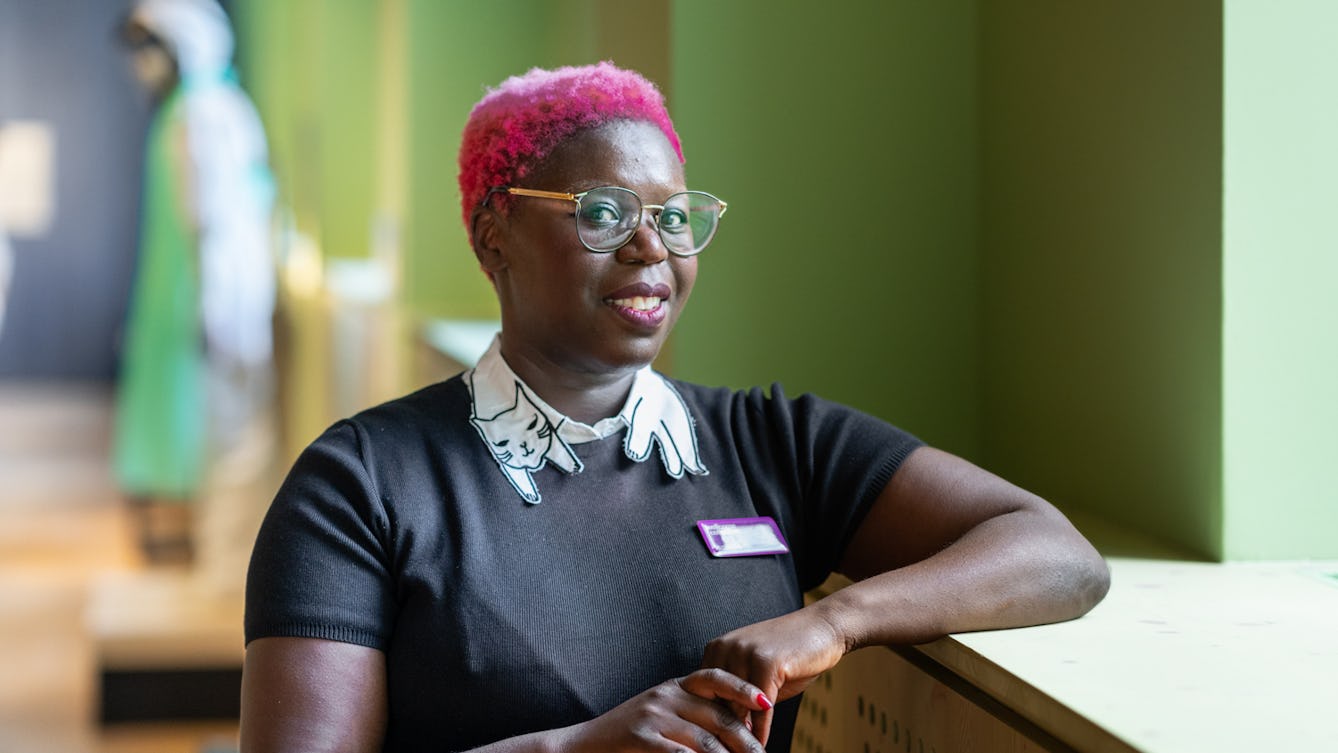What you’ll do
Join facilitator Isabelle Gapomo for a series of five talks and tours on Thursday evenings throughout October as part of Black History Month.
Each session will take about 45 minutes, with the chance to ask questions at the end.

Join facilitator Isabelle Gapomo for a series of five talks and tours on Thursday evenings throughout October as part of Black History Month.
Each session will take about 45 minutes, with the chance to ask questions at the end.
We’ll meet at the Information Point, which is on level 0, directly in front of you as you enter Wellcome Collection.
Booking a ticket for a free event does not guarantee you a place. You should aim to arrive 15 minutes before the event is scheduled to start to claim your place. If you do not arrive on time, your place may be given to someone on the waiting list.
If this event is fully booked, you may still be able to attend. We will operate a waiting list, which opens 30 minutes before this event starts. Arrive early, and we’ll give you a numbered ticket. If there are any unfilled places just before the start time, we will invite you to enter in order of ticket number.
For more information, please visit our Accessibility page. If you have any queries about accessibility, please email us at access@wellcomecollection.org or call 0 2 0. 7 6 1 1. 2 2 2 2
Isabelle Gapomo is a visitor experience and engagement facilitator at Wellcome Collection, where she fosters critical dialogue and reflection in an inclusive environment. Isabelle has a keen interest in connecting historical and contemporary issues, including developing a series of talks that explore the impact of labour and health in Black communities and beyond.
Sign up to our newsletter to find out what’s on, read our latest stories and get involved.